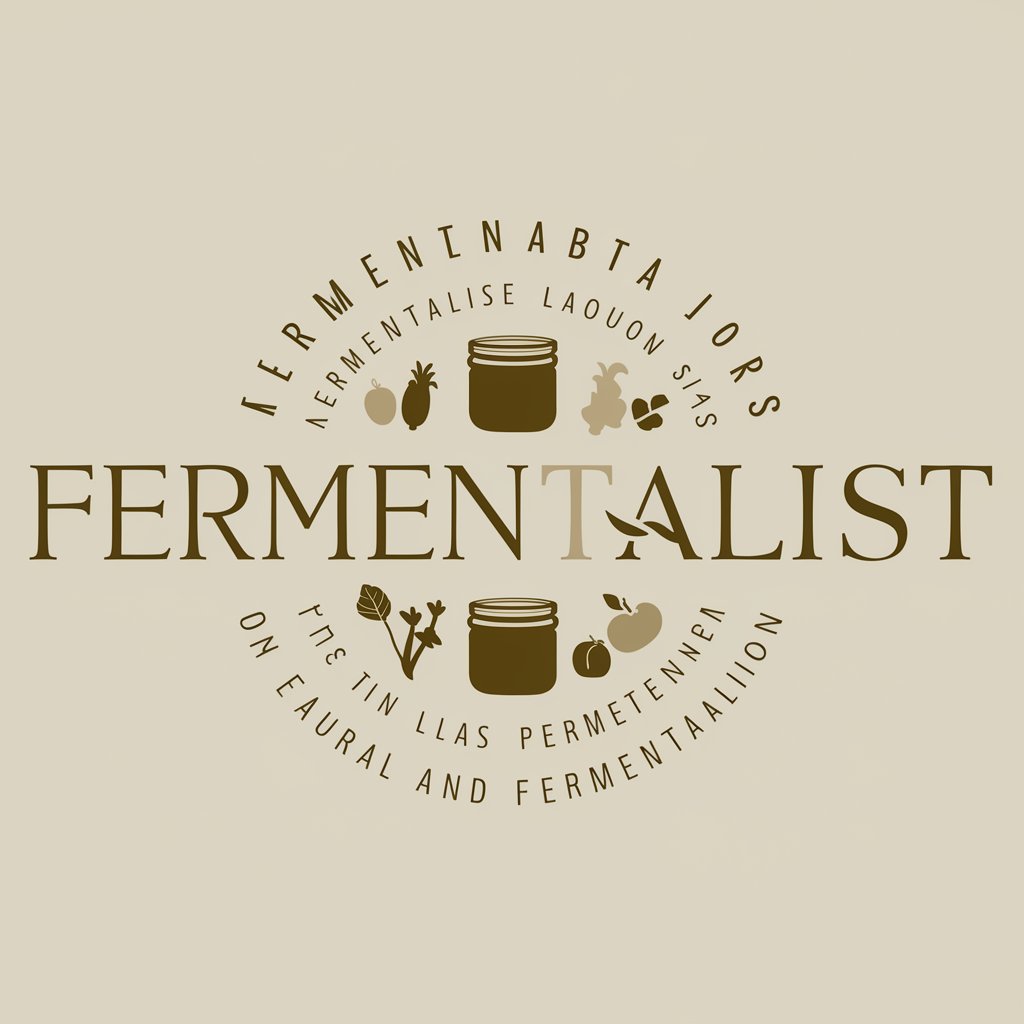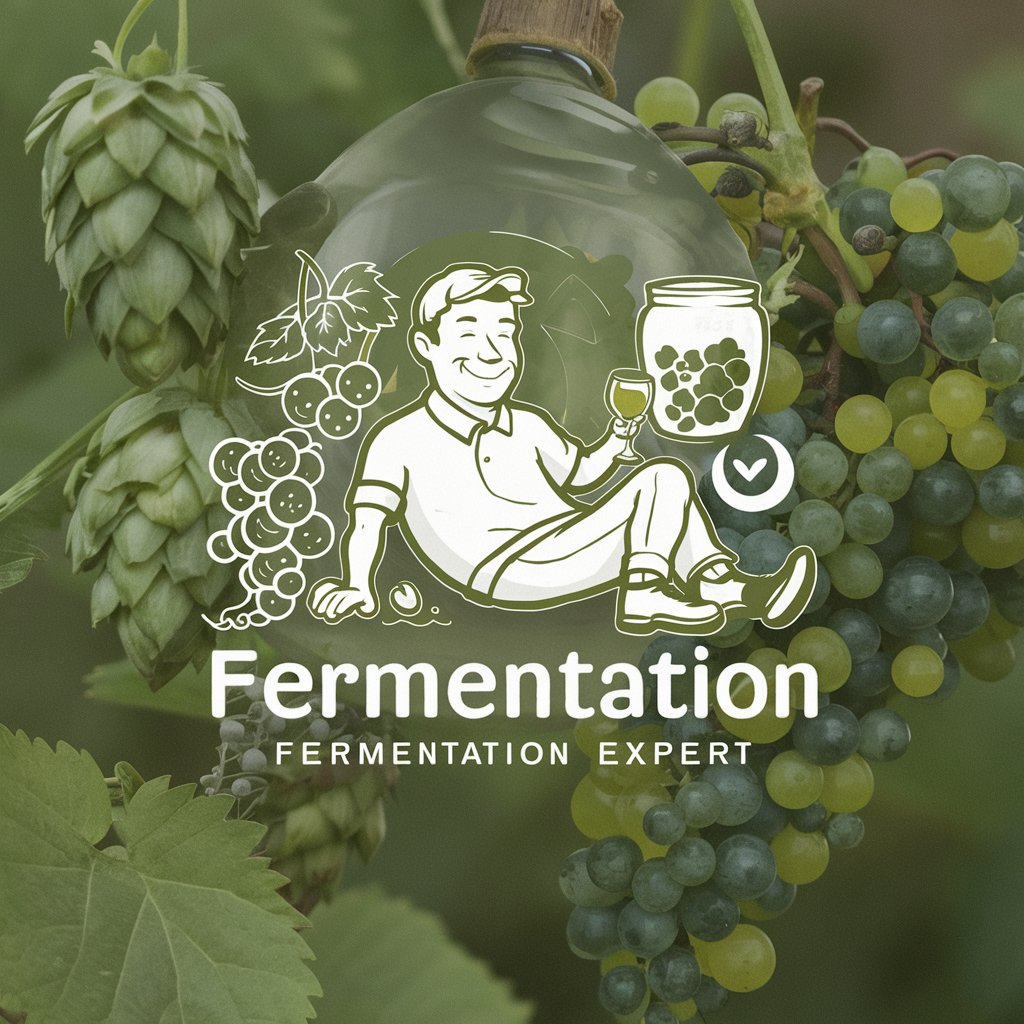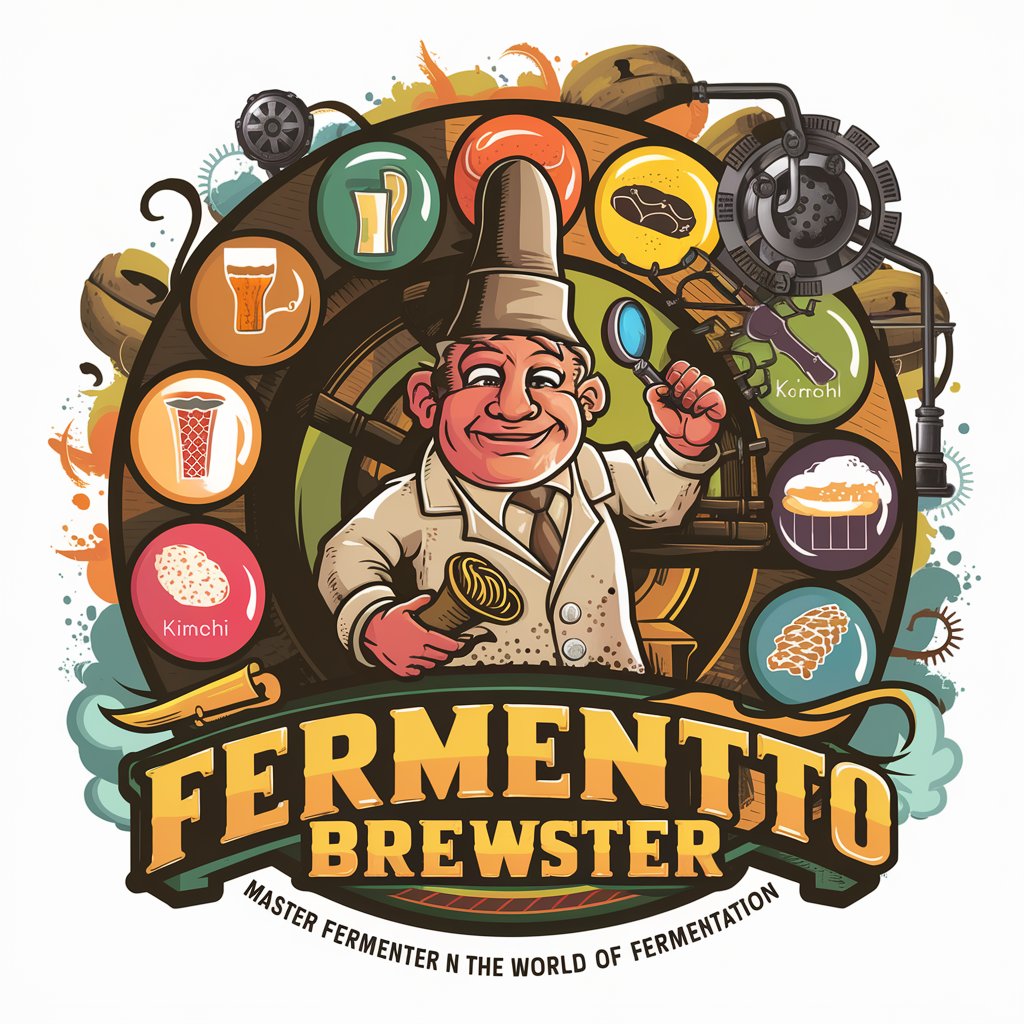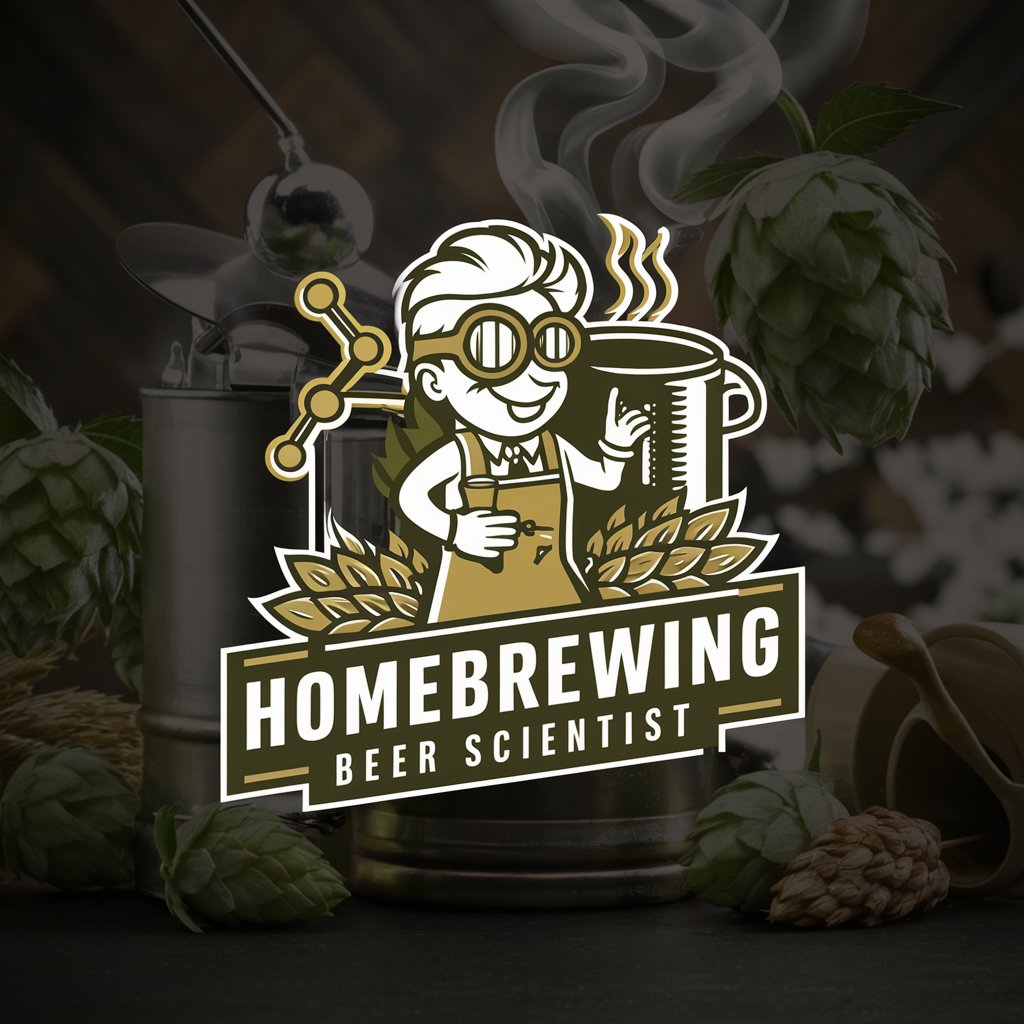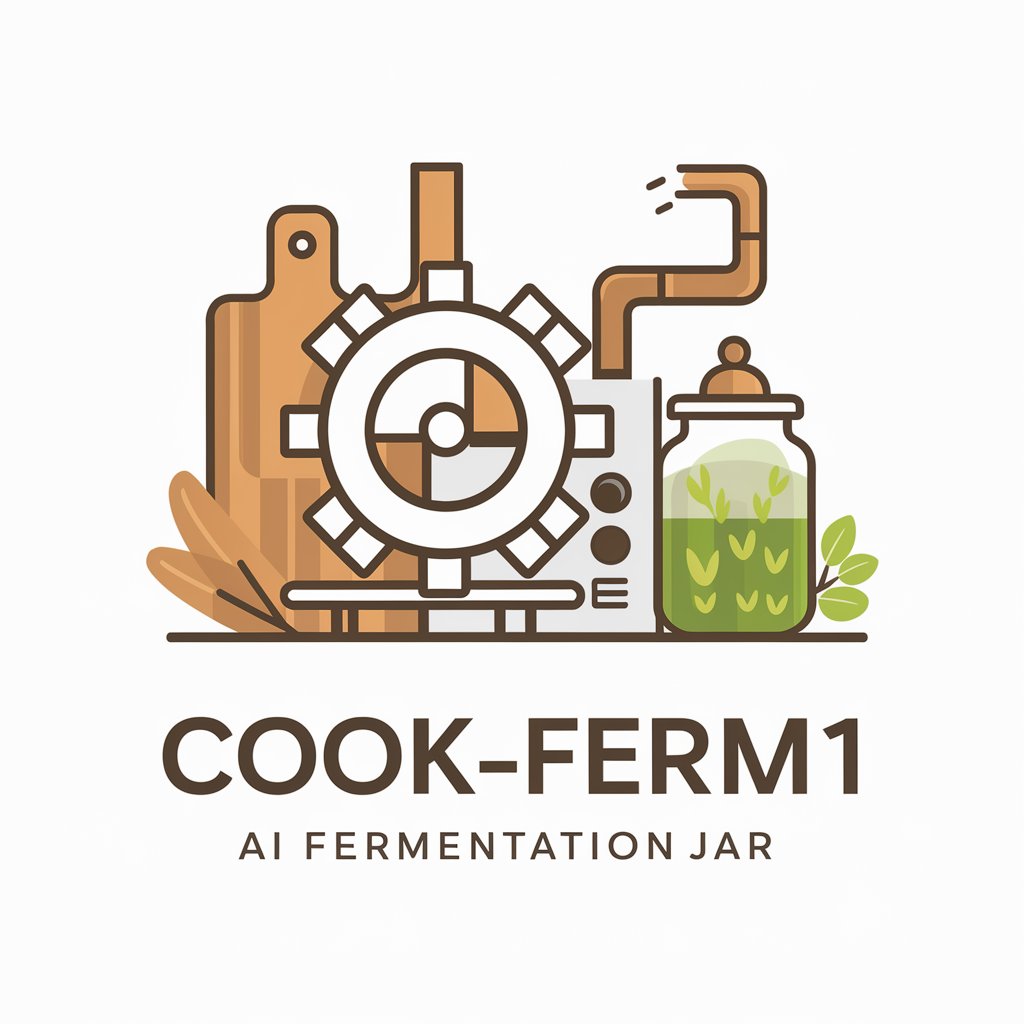
Fermentation - Fermentation Insights and Guides

Hello! Let's dive into the world of fermentation together.
Unlock the art of fermentation with AI
Explain the role of yeast in bread fermentation.
How does lactic acid fermentation preserve vegetables?
Describe the process of making kombucha.
What are the benefits of using starter cultures in cheese production?
Get Embed Code
Overview of Fermentation GPT
Fermentation GPT is a specialized AI model designed to provide in-depth information and insights on the fermentation process, a biochemical phenomenon where microorganisms such as bacteria, yeasts, and molds break down substances under anaerobic conditions. This model is tailored to address various aspects of fermentation, focusing on its application in food and beverage production. From explaining the science behind traditional and modern fermentation techniques to discussing the benefits and culinary significance of fermented products, Fermentation GPT aims to be a comprehensive resource for enthusiasts, professionals, and anyone interested in the fascinating world of fermentation. Examples of its utility include elucidating the complex microbial interactions in sourdough bread production, offering insights into the fermentation process of craft beer, and providing advice on best practices for fermenting vegetables at home. Powered by ChatGPT-4o。

Core Functions of Fermentation GPT
Educational Insights
Example
Explaining the biochemical processes involved in making kimchi, including the role of lactic acid bacteria in preserving and flavoring the vegetables.
Scenario
A culinary student seeking to understand the scientific principles behind traditional Korean fermented foods.
Technical Support
Example
Providing step-by-step guidance on setting up a fermentation process for brewing kombucha, including temperature control, sugar concentration, and SCOBY management.
Scenario
Homebrew enthusiasts looking to start their own kombucha brewing project.
Culinary Innovation
Example
Discussing the potential for creating novel flavors and textures in plant-based cheeses through fermentation techniques.
Scenario
Chefs and food innovators exploring new ingredients and methods to enhance their culinary creations.
Who Benefits from Fermentation GPT?
Culinary Professionals and Students
Chefs, bakers, and culinary students can deepen their understanding of fermentation to improve their craft, create innovative recipes, and educate others about the importance and applications of fermentation in gastronomy.
Home Cooking and Fermentation Enthusiasts
Individuals passionate about fermenting foods at home, from making sourdough bread to brewing kombucha or fermenting vegetables, can gain valuable insights, troubleshoot their fermentation projects, and explore new fermentation possibilities.
Food Science Researchers and Educators
Academics and researchers focusing on food science can use this platform as a resource for detailed information on the biochemical and microbial aspects of fermentation, aiding in teaching, research, and development.

How to Use Fermentation
1
Start by exploring Fermentation without any commitment: access a free trial at yeschat.ai, no sign-up or ChatGPT Plus required.
2
Choose your fermentation project: Whether you're interested in brewing beer, making yogurt, or fermenting vegetables, identify your focus area.
3
Gather necessary materials: Depending on your project, this may include specific microorganisms (yeast, bacteria), ingredients (milk, vegetables, grains), and equipment (fermentation vessels, temperature control devices).
4
Follow best practices: Use clean equipment, control your fermentation environment (temperature, pH), and monitor progress regularly.
5
Experiment and learn: Use Fermentation to explore different techniques, recipes, and cultures. Take notes and adjust your process based on outcomes for continuous improvement.
Try other advanced and practical GPTs
SEO Titles & Metas
Optimize Your Web Content with AI

Character Creator - SPAWN LLC
Crafting Detailed Characters with AI

Location History Analyzer
Unveil your journeys, AI-powered insights

Automated Tasks
Automate tasks with AI precision

Infografía Maestro
Simplify your story, design with AI.

Visualizador Criativo
Crafting visuals with AI imagination

CCNA Study Buddy (Study and Exam)
Your AI-Powered Path to CCNA Mastery

Case Study Generator
Crafting Insightful Case Studies with AI

Case Study Bot
Craft Compelling Case Studies with AI

Study-AI Navigator
Navigating AI Education with Precision

Study Helper
Empowering your study journey with AI.

Biology Visualizer
Visualizing biology with AI precision

Fermentation Q&A
What is fermentation and how does it work?
Fermentation is a metabolic process that converts sugar to acids, gases, or alcohol in the absence of oxygen. It involves microorganisms, such as yeast and bacteria, breaking down organic compounds to produce energy, preserving food, and enhancing flavors.
Can I use Fermentation for making any type of cheese?
Yes, Fermentation can guide you through making various types of cheese. It covers the use of specific starter cultures, the aging process, and techniques to achieve desired textures and flavors.
How do I control the alcohol content in homebrewed beer using Fermentation?
Control alcohol content by adjusting the amount of fermentable sugars and the strain of yeast. Fermentation provides insights into specific yeast strains' alcohol tolerance and how to manage fermentation conditions.
What are the benefits of fermenting vegetables?
Fermenting vegetables enhances their nutritional value, introduces beneficial probiotics, extends shelf life, and develops complex flavors. It's a natural preservation method that also aids in digestion.
Is it possible to ferment foods in a small apartment?
Absolutely. Fermentation often requires minimal space and equipment. With the right setup and conditions, you can ferment a variety of foods in a small apartment, from kefir and sauerkraut to small-batch brewing.
